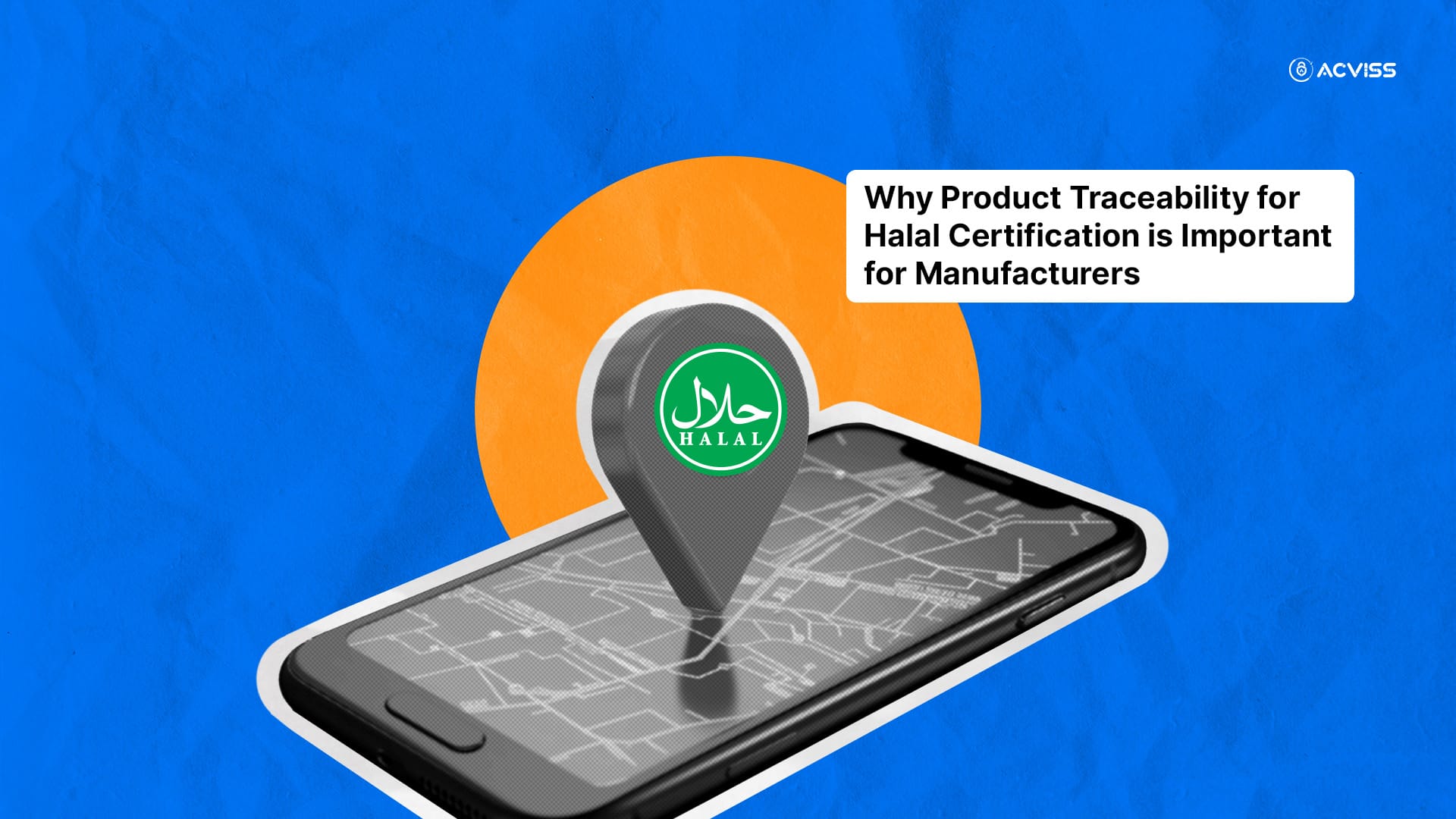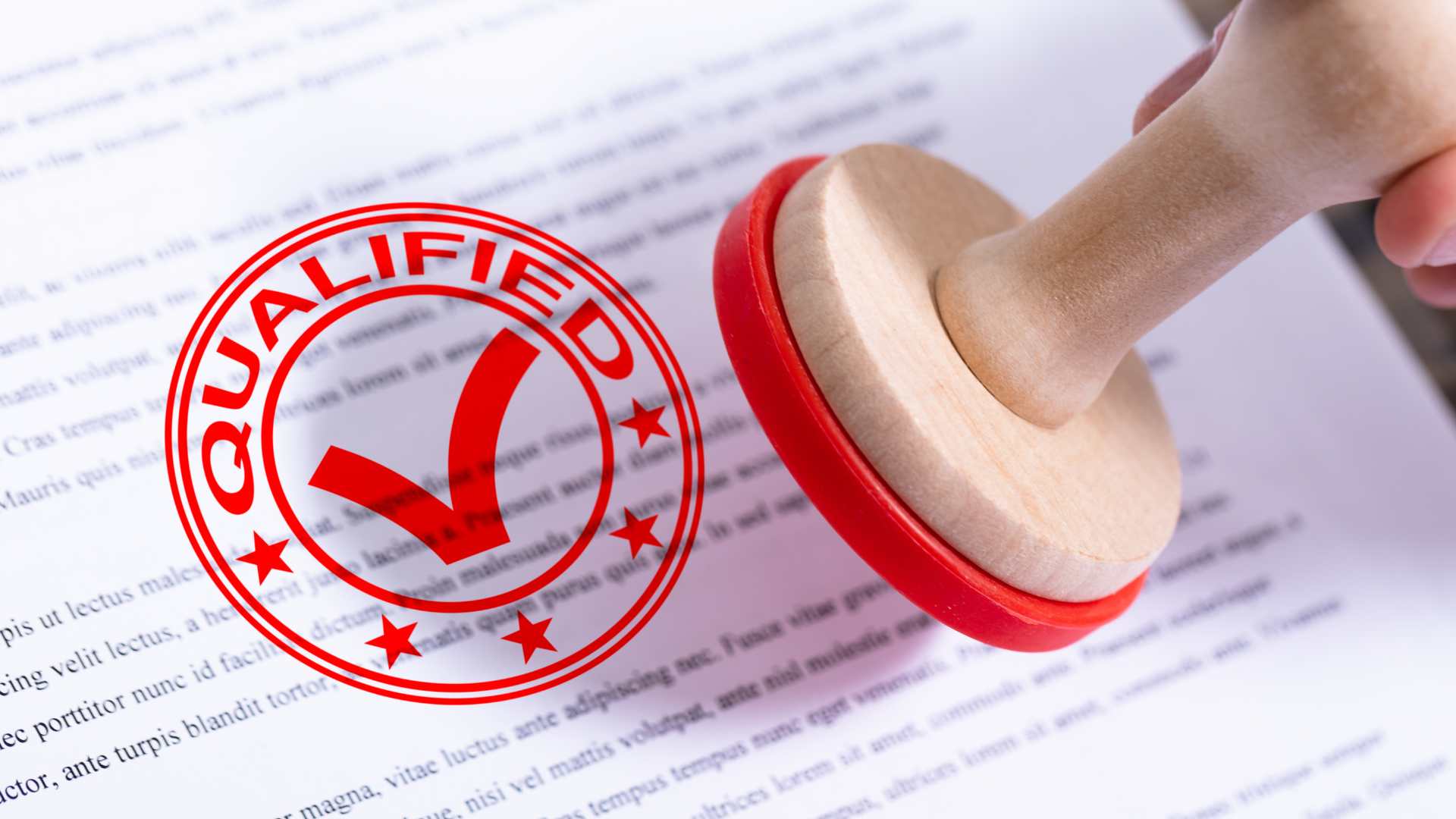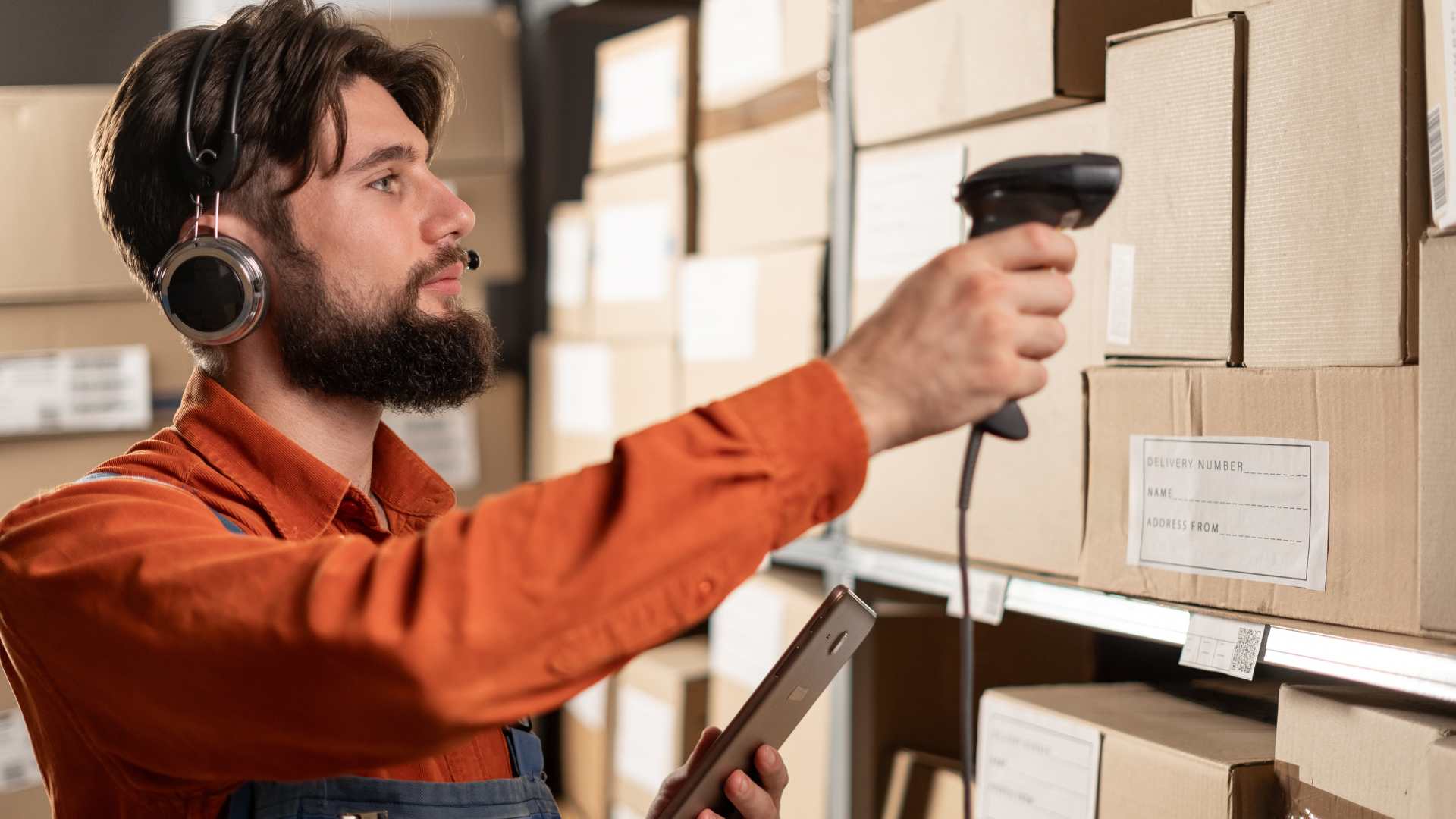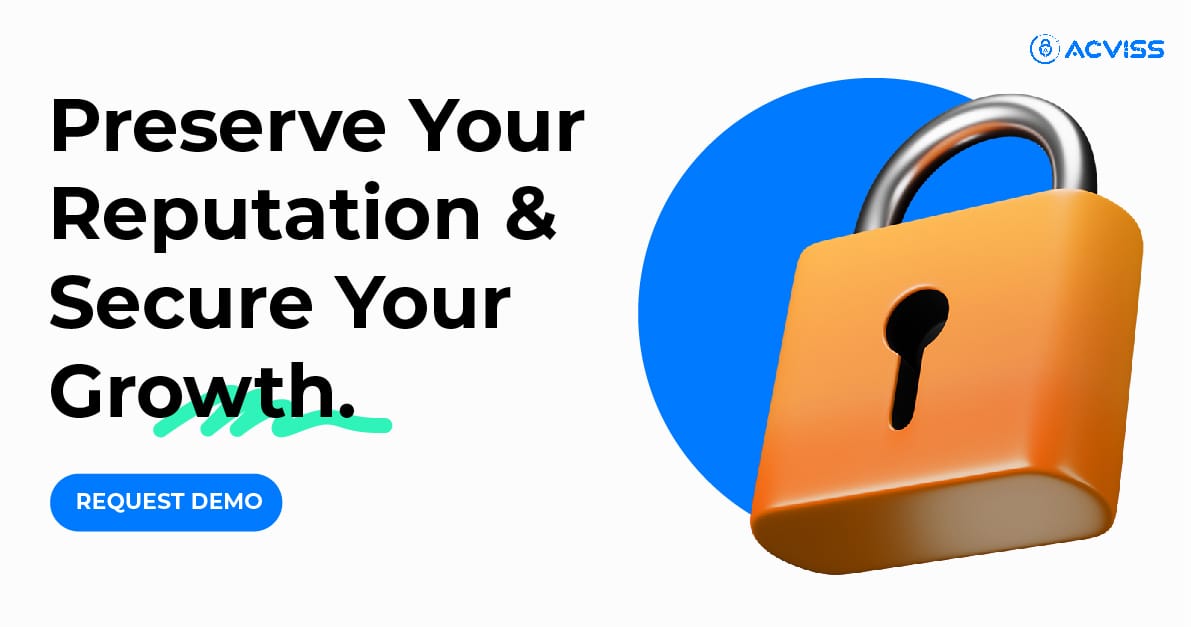Why Product Traceability for Halal Certification is Important for Manufacturers

Global trade has transformed the way food and consumer goods are produced, distributed, and consumed. Yet, when it comes to matters of faith and compliance, trust cannot be compromised. For Muslim consumers around the world, the assurance that products are genuinely Halal is non-negotiable. For manufacturers, this assurance is not just a regulatory requirement but also a responsibility that directly impacts brand trust, market access, and long-term growth.
Halal certification today is not only about ticking a compliance checklist. It has become a complex interplay of supply chain management, product authentication, and product traceability. The integrity of Halal-labelled products is continuously being tested in a fragmented, globalised market where counterfeiting, mislabelling, and fraudulent claims can easily slip through traditional safeguards. This is where advanced track and trace technologies, authentication solutions, and non-cloneable security labels come into play.
Why Halal Certification Goes Beyond Labels
Halal certification is essentially a guarantee that a product complies with Islamic dietary laws. However, the certification process does not end with the approval stamp. For consumers, the value lies in consistent verification across the entire supply chain, from sourcing raw materials to manufacturing, logistics, and retail.
The challenges arise when supply chains stretch across multiple geographies and involve countless intermediaries. Each stage introduces the possibility of contamination, substitution, or fraudulent claims. Without a robust system of product verification and authentication, manufacturers risk more than just regulatory non-compliance. They risk damaging their reputation, losing consumer trust, and facing legal repercussions related to IP protection and trademark violations.
The Role of Product Traceability in Halal Assurance

Product traceability is the backbone of trust in Halal certification. By definition, it enables manufacturers to track and trace products across the supply chain, ensuring that the integrity of Halal compliance is never compromised.
1. Building Consumer Confidence
Consumers today demand proof, not promises. A traceability system allows them to verify where ingredients are sourced, how they are processed, and whether they meet Halal standards. With digital product verification tools, customers can scan a product and instantly access its history, reinforcing confidence in the brand.
2. Safeguarding Against Counterfeiting
Counterfeiters have become increasingly sophisticated, often replicating packaging and certification labels with alarming accuracy. This is where non-cloneable label solutions become indispensable. Unlike traditional barcodes or holograms that can be duplicated, non-cloneable labels provide a unique, immutable identity to each product. Combined with track and trace systems, they create a secure bridge between brand authentication and consumer verification.
3. Enabling Regulatory Compliance
Governments and certification bodies are becoming stricter with compliance. Manufacturers cannot afford to rely solely on paperwork and manual inspections. A digital traceability programme ensures accurate records, real-time audits, and verifiable proof of compliance. This reduces the risk of penalties, product recalls, or certification revocations.
Challenges in Halal Supply Chain Management
The global Halal economy is estimated to be worth trillions, spanning food, cosmetics, pharmaceuticals, and even logistics. Yet, supply chain management in this sector remains fraught with challenges:
- Complex sourcing networks: Raw materials often pass through multiple suppliers across different countries, creating gaps in oversight.
- Fragmented certification bodies: Different markets have varying standards for Halal certification, complicating compliance.
- Counterfeit risks: Fraudulent products bearing fake Halal marks undermine consumer confidence and expose brands to litigation.
- Limited visibility: Traditional systems lack the transparency needed to ensure compliance across borders.
These challenges cannot be solved by certification alone. They demand advanced anti-counterfeiting solutions, technologies for brand protection, and digital systems for product authentication.
Why Traceability is the Future of Halal Certification

1. From Certification to Continuous Assurance
Certification, once granted, should not be treated as permanent. Halal assurance needs to be continuous, and traceability is the mechanism that ensures this. Manufacturers can implement track and trace programmes that monitor every movement of the product, from source to shelf.
2. Enhancing Brand Protection
Brands that invest in traceability programmes are not just complying with regulations; they are protecting their trademarks and intellectual property (IP). By combining trademark protection with digital product authentication, manufacturers can prevent fraudsters from misusing Halal labels or logos. This is a key step in safeguarding both brand reputation and consumer trust.
3. Creating Differentiation in Competitive Markets
With more companies vying for space in the global Halal market, differentiation becomes critical. Transparent track and trace systems that allow consumers to verify products through digital tools create an immediate advantage. It signals commitment to integrity and accountability, setting a brand apart from competitors.
Technologies Powering Halal Traceability
Modern supply chains are too complex to be managed by traditional methods. Manufacturers today are turning to advanced technologies to secure Halal assurance.
- Blockchain for immutable records: Every step of the product journey can be recorded in a tamper-proof ledger, ensuring no data is altered.
- AI and machine learning for risk detection: These technologies can analyse patterns to detect irregularities, counterfeit risks, or non-compliance early.
- Non-cloneable labels for authentication: They provide a unique product identity, ensuring that verification cannot be duplicated by counterfeiters.
- Digital consumer engagement tools: Empowering consumers to verify authenticity with a simple scan reinforces trust and loyalty.
Solutions like Acviss Origin, a blockchain-powered track and trace system, are examples of how technology can transform Halal assurance. By combining immutable records with non-cloneable authentication, such solutions enable manufacturers to create transparency while protecting their brand’s IP.
Case in Point: Lessons from the Food and Pharma Sectors
Industries such as pharmaceuticals and food safety have already demonstrated the importance of traceability. In pharma, regulations like serialisation mandate that every drug pack can be tracked from manufacturer to consumer. This approach drastically reduces counterfeit risks and enhances patient safety.
For Halal-certified products, the same principles apply. By adopting similar product traceability frameworks, manufacturers can not only comply with Halal certification requirements but also protect themselves from counterfeit risks, maintain IP protection, and strengthen consumer trust.
The Broader Scope: Beyond Food Products
While Halal certification is often associated with food, the demand extends to cosmetics, nutraceuticals, pharmaceuticals, and even supply chain logistics. Consumers want assurance that every component, from ingredients to packaging, aligns with Halal requirements.
Manufacturers in these industries face even greater risks from counterfeiting and mislabelling. Implementing product verification and brand authentication systems becomes critical to meet consumer expectations and maintain credibility in these high-stakes markets.
Traceability as a Strategic Necessity
For manufacturers, Halal certification is no longer about securing a certificate; it is about delivering continuous assurance and building consumer trust in a highly competitive market. Product traceability ensures transparency, prevents counterfeiting, supports brand protection, and strengthens IP rights.
With non-cloneable label solutions and advanced track and trace technologies, manufacturers can transform Halal assurance into a long-term strategy for growth and trust. Solutions like Acviss Origin demonstrate how technology can enable this transformation, safeguarding both compliance and reputation.
Interested to learn more about how product traceability can protect your Halal-certified brand? Get in touch with us today.
